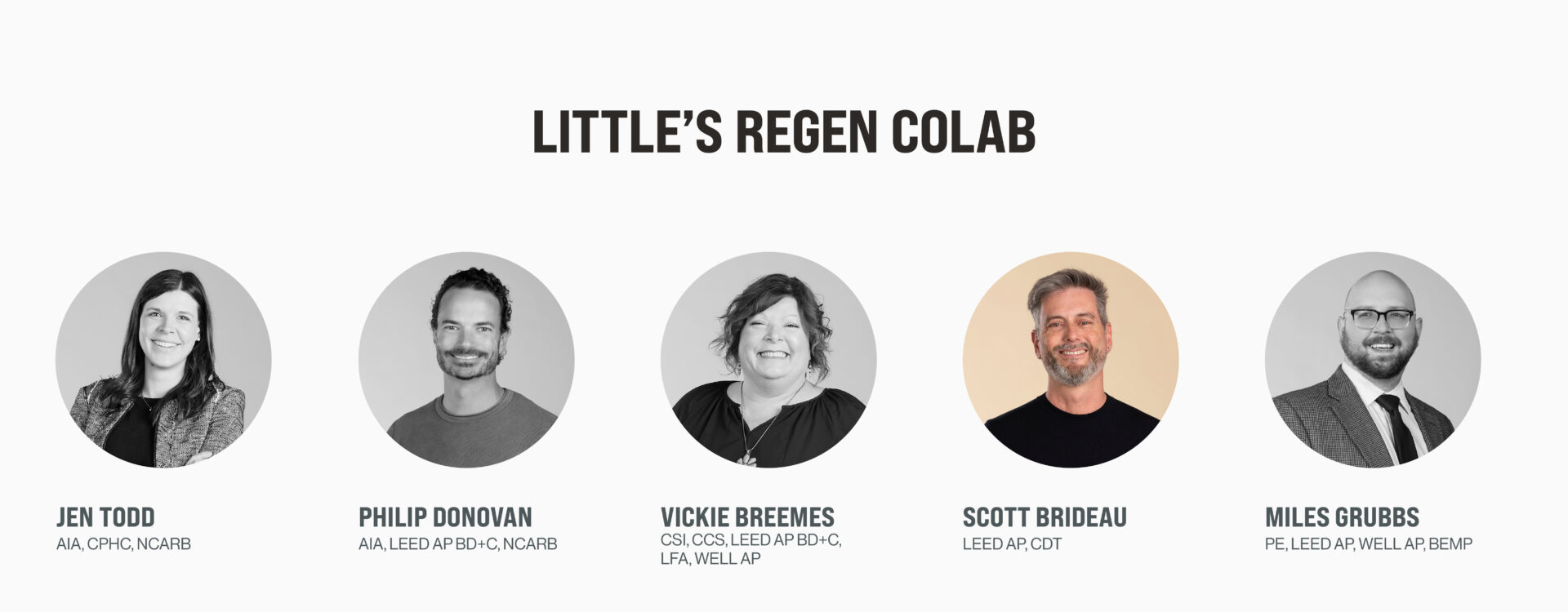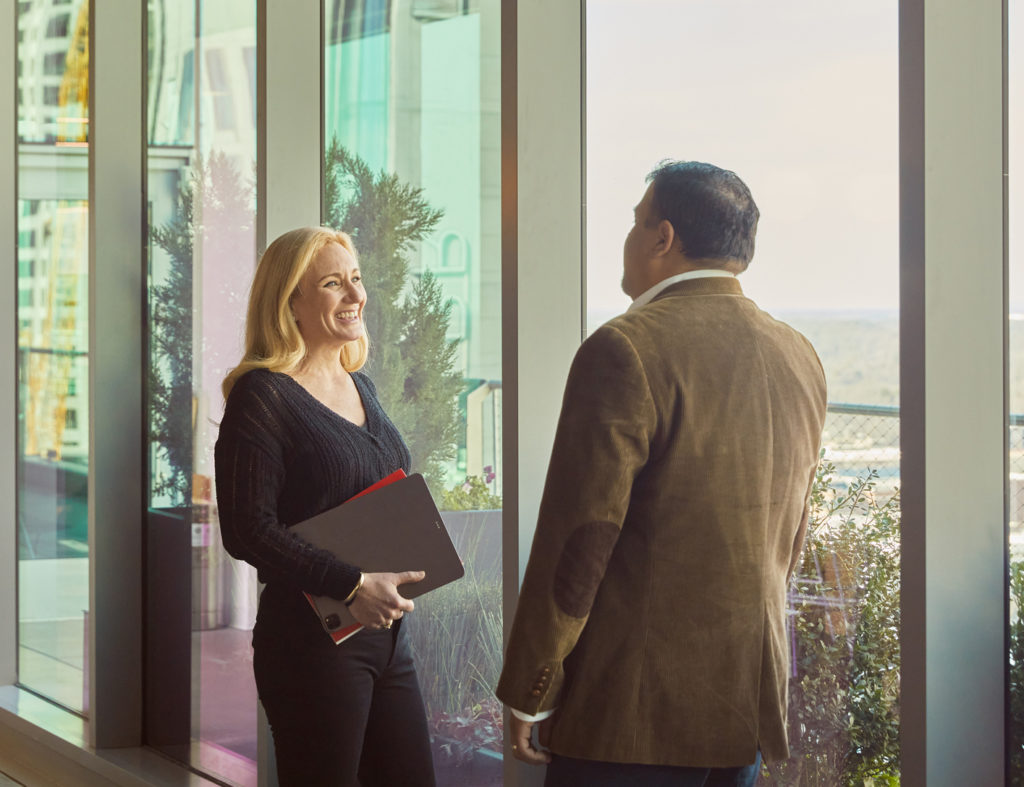At Little, we are committed to a regenerative future and driven to evolve from awareness to action. Our Regen CoLab is a talented team of collaborators who focus on building a culture of regenerative practice within Little. We are excited to spotlight these individuals and share how our focus areas of measurement in Health, Energy, Water, and Social Equity (HEWS) set a path toward a regenerative future. Today we are introducing Regen CoLab director Scott Brideau.

THE POTENTIAL FOR REGENERATION
As an architect, Scott Brideau didn’t always connect his clients’ goals with sustainability. He knew that the built environment impacted the planet, but focused on client business drivers and making sure that his team delivered exactly what clients wanted. It wasn’t until he gained a deeper understanding of regeneration that he realized its immense potential for creating better solutions for his clients and a better world for future generations, at the same time.
Looking back, Scott can’t pinpoint a single event that led him to commit his career to a focus on regenerative design outcomes for the sake of his clients and their communities. It was an accumulation of experiences and interactions over his almost 40-year career; taking opportunities that presented themselves—and maybe more importantly, missing a few that stuck with him—that made him realize he needed to practice architecture more responsibly.
THE IMPACT OF THE BUILT ENVIRONMENT
The built environment profoundly impacts the most important aspects of our lives, from our health and well-being to the social fabric of our communities, to our context and climate. Scott realized that many unwelcome outcomes occur because we pay attention to the wrong things. He also saw the positive impact of shifting our approach to seeing nature as a partner rather than an obstacle. This realization sparked a passion for supporting the changes needed in our industry to deliver better projects for clients and leave a positive legacy for future generations.
“As designers we can move toward a regenerative future by widening the view of a project. This doesn’t mean adding unrequested scope, but rather digging into why the project matters to its place. What additional value can it add? How can we connect it to the larger fabric of a neighborhood, community, watershed, or ecosystem in a way that adds value for all those concerns? By asking these questions, we can influence the direction of design decisions and help clients deliver more meaningful projects that positively impact their surroundings,” Scott adds.
REGENERATION AS A MINDSET AND APPROACH
Little is committed to ensuring that regeneration is not just a mindset for a few projects but a natural way of working throughout the firm. Through training, ongoing coaching, and continuous development of tools, everyone in the firm, regardless of their discipline or role, is poised to contribute to this goal on every project. Leaders like Scott recognize the benefits of asking team members to go beyond the status quo, taking small steps—or giant strides—toward designing for regenerative outcomes.
“Scott is a passionate advocate for looking beyond the borders of a project site, helping us understand how our work impacts all the interconnected communities within the whole system of life. He pushes us to be better every day with a kind and gentle smile that encourages the best parts of us to lead our clients toward a regenerative future,” shares Regen CoLab Director Philip Donovan.
Scott stresses that it is for crucial clients to understand that regeneration is a mindset based in sound decision-making. Knowing that our clients understand how to focus on the real value of their project, beyond first costs, he asks what the impacts are on employees, customers, and the community. By aiming for regenerative outcomes, projects can deliver on their value to a community by improving user/occupant health, costing less to operate by using fewer natural resources, and creating added social value through well-thought-out, integrative design, resulting in a greater return on investment in all areas.
IN SUMMARY
Regeneration is not just a buzzword but a mindset and approach that has the power to shape a better future for our planet and communities. It requires revising our processes, and engaging with clients and stakeholders to create projects that surpass sustainability and contribute to regenerating our environment and community. As architects and designers, we have the opportunity and responsibility to embrace regeneration as a guiding principle in our work and actively contribute to a more sustainable and resilient future for all.
Scott Brideau is an advocate for design solutions with regenerative outcomes. As one of four Directors of Little’s Regen CoLab and a studio principal in Little’s Workplace practice with almost four decades of experience, Scott fuses his understanding of a client’s DNA with his knowledge of best practices and emerging workplace design trends to create breakthrough solutions that enhance organizational work patterns, enable the peak performance of individuals and teams, and contribute to a regenerative future.
Interested in learning more? Check out previous employee spotlights featuring Little’s Regen CoLab: Jen Todd | Philip Donovan | Vickie Breemes | Miles Grubbs

